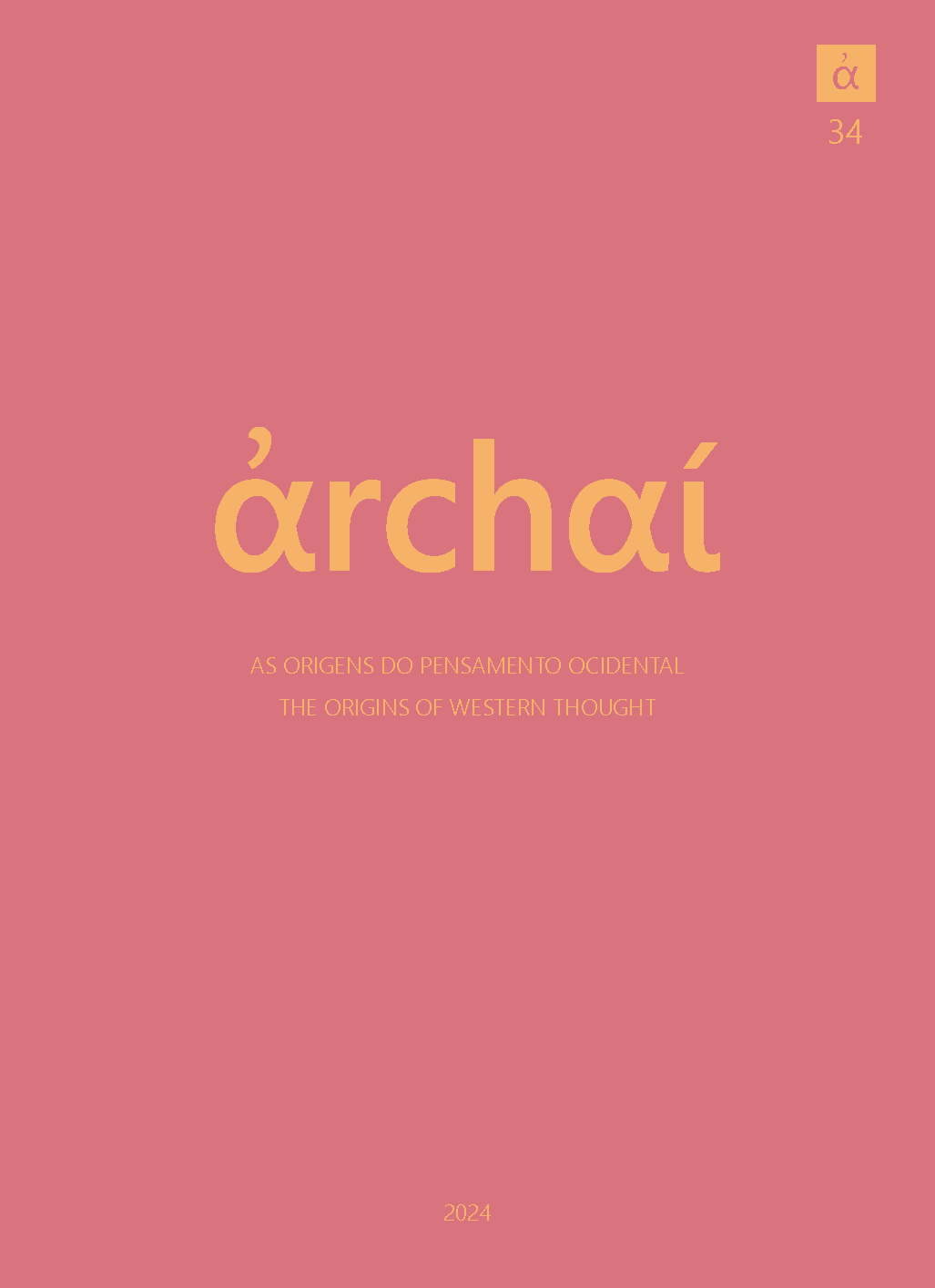Beyond the dichotomy between body and soul: notes on the “affinity argument” (77e-80d) in Plato’s Phaedo
DOI:
https://doi.org/10.14195/1984-249X_34_21Keywords:
Plato, body, soul, death, immortality, cognition, theory of FormsAbstract
The third argument in favor of the immortality of the soul in the Phaedo, which the exegetical tradition also calls the “affinity argument” (77e-80d), presents a curious relationship between body and soul, which is often seen by commentators as a radical dichotomy. To discuss this passage of the Phaedo in the attempt to surpass this alleged dichotomy sometimes imputed to Plato in this dialogue, we propose, in this article, a close analysis of the argument in two steps:
-
(i) the analogy between the soul and the Forms (78b-79c),
-
(ii) and the analogy between the soul and the divine (80a-c).
Because this argument has been generating controversy and trusting that this debate is far from reaching its term, the objective of this article is to answer three questions: how are we to understand the affinity argument in the economy of the Phaedo? How are we to understand the relationship between body and soul in this argument? Finally, does the platonic text allows us to infer a radical dichotomy between these two elements?
Downloads
References
APOLLONI, D. (1996). Plato’s Affinity Argument for the immortality of the soul. Journal of the History of Philosophy v. 34, n. 1, p. 5‑32.
AZEVEDO, M. T. S (1988). Platão. Fédon 2ªed. Coimbra, Livraria Minerva.
BOSTOCK, D. (2002). Plato’s Phaedo 2ed. New York, Oxford University Press. (1ed 1986)
BURGER, R. (1984). The Phaedo: A Platonic Labyrinth New Haven, Yale University Press.
CORNELLI, G. (2016). A alma‑camaleão e sua plasticidade: dualismos platônicos no Fédon Archai, n. 16, p. 203‑222.
PRADO, A. L. A (2006). Platão. República São Paulo, Martins Fontes.
DI GIUSEPPE, R. (1993). La Teoria della Morte nel Fedone Platonico Nápoles, Società Editrice il Mulino.
DIXSAUT, M. (1991). Platon. Phédon (traduction, introduction et notes). Paris, GF Flammarion.
GUTHRIE, W. K. C. (1975). A History of Greek Philosophy vol. 4, Cambridge, Cambridge University Press.
HACKFORTH, R. (1955). Plato’s Phaedo Cambridge, Cambridge University Press .
IGLÉSIAS, M. (1998). Platão: a descoberta da alma. Boletim do CPA (Campinas), 5/6, p. 13-60.
NUNES, C. A. (2011). Platão. Fédon Belém, Ed.UFPA. (1ed 1980).
Downloads
Published
How to Cite
Issue
Section
License
Copyright (c) 2024 Vitor de Simoni Milione

This work is licensed under a Creative Commons Attribution 4.0 International License.
Given the public access policy of the journal, the use of the published texts is free, with the obligation of recognizing the original authorship and the first publication in this journal. The authors of the published contributions are entirely and exclusively responsible for their contents.
1. The authors authorize the publication of the article in this journal.
2. The authors guarantee that the contribution is original, and take full responsibility for its content in case of impugnation by third parties.
3. The authors guarantee that the contribution is not under evaluation in another journal.
4. The authors keep the copyright and convey to the journal the right of first publication, the work being licensed under a Creative Commons Attribution License-BY.
5. The authors are allowed and stimulated to publicize and distribute their work on-line after the publication in the journal.
6. The authors of the approved works authorize the journal to distribute their content, after publication, for reproduction in content indexes, virtual libraries and similars.
7. The editors reserve the right to make adjustments to the text and to adequate the article to the editorial rules of the journal.



